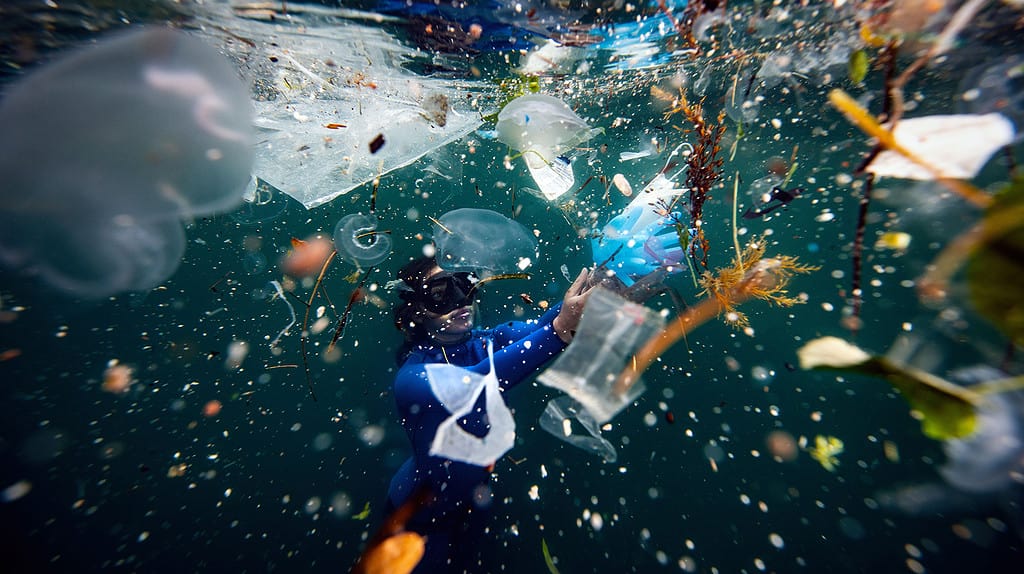Plastic pollution has emerged as one of the most pressing environmental challenges of our time. Our oceans, once teeming with life and beauty, are now inundated with vast quantities of plastic waste.
Every year, millions of metric tons of plastic find their way into our oceans. It is estimated that over 8 million tons of plastic waste enter marine environments annually, wreaking havoc on delicate eco-systems. Plastic debris accumulates in gyres, forming colossal patches of floating garbage, the most infamous of which is the Great Pacific Garbage Patch. These patches pose a significant threat to marine life, as animals can ingest or become entangled in plastic, leading to injury, suffocation and death.
The impact of plastic pollution on marine life is devastating. Countless seabirds, turtles, seals, and whales are found dead with stomachs full of plastic, mistaking it for food. The ingestion of plastic can cause internal injuries, blockages, and malnutrition, leading to reduced reproductive success and population decline. Additionally, marine animals often become entangled in plastic debris, leading to severe injuries or immobilisation, making them vulnerable to danger.
Plastic pollution disrupts marine ecosystems in multiple ways. Corals, vital to the health of reefs, face stress and disease due to plastic debris. Plastics also release harmful chemicals into the water, contributing to water pollution and affecting the balance of marine ecosystems. Moreover, small microplastics, resulting from the breakdown of larger plastic items, are ingested by plankton and enter the food chain.
Beyond environmental consequences, plastic pollution in our oceans directly affects human activities. Coastal economies heavily dependent on fishing, tourism, and recreational activities, suffer as marine habitats degrade. Plastic waste washing up on beaches not only ruins their natural beauty but also poses risks to beach goers. Furthermore, the consumption of seafood contaminated with microplastics poses potential health hazards, although the full extent of these risks is still being studied.
Tackling plastic pollution requires a multifaceted approach. Efforts must focus on reducing plastic production, promoting recycling and waste management systems, and advocating sustainable alternatives. Governments, industries, and individuals all have a role to play in curbing the crisis. Legislation and regulations should be implemented to limit single-use plastics, encourage eco-friendly packaging, and incentivise recycling. Education and awareness campagins can empower individuals to make concious choices and reduce their plastic consumption.
The plastic pollution crisis in our oceans demands immediate attention and concerted action. The well-being of marine ecosystems, wildlife, and ultimately, our own survival, is at stake. By recognising the gravity of the problem and taking proactive steps to address it, we can strive towards a future where our oceans are free from the clutches of plastic pollution, allowing them to thrive in all of their natural splendour.


We now supply an innovative strapping solution, that is made from plastic collected from the worlds oceans and beaches. Utilising ocean plastic for strapping helps reduce the amount of plastic. It also encourages and promotes recycling efforts, raising awareness about the importance of recycling and showcases the potential value of recycled materials.
By repurposing ocean plastic into strapping it reduces the need for virgin plastic production. This decreases greenhouse emissions associated with the manufacturing process.
To find out more contact us and discuss our strapping products and how to adopt more sustainable processes and operations.